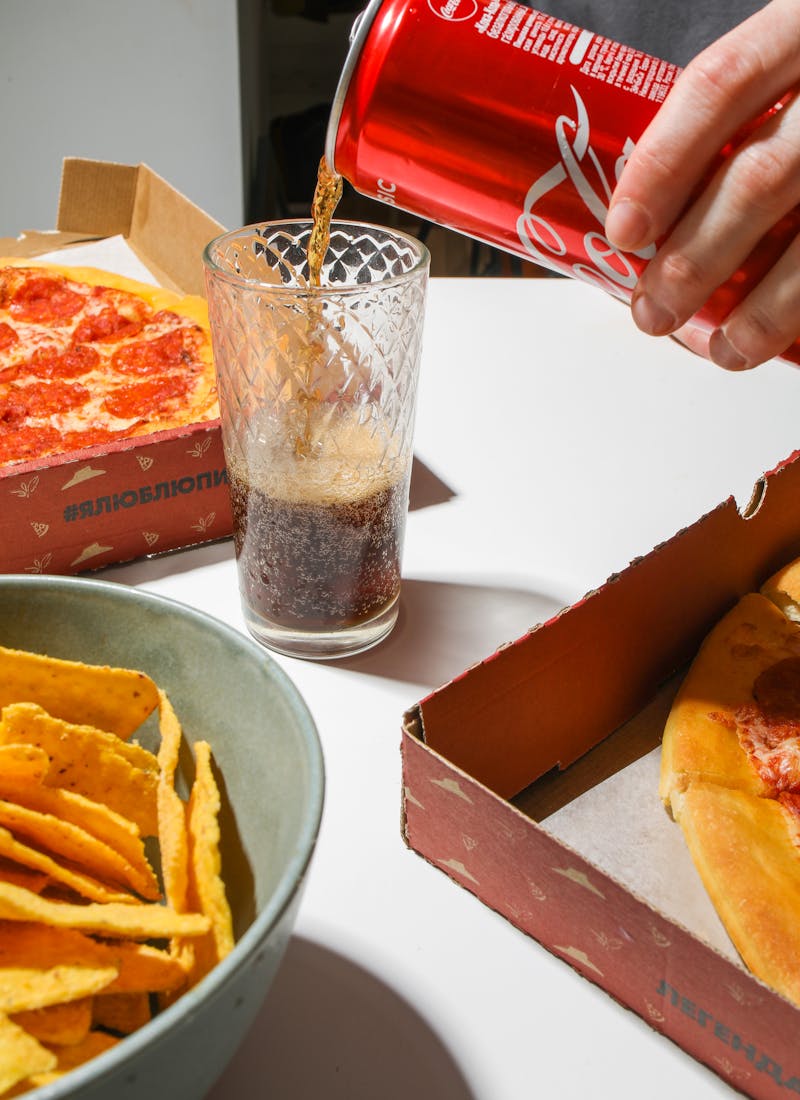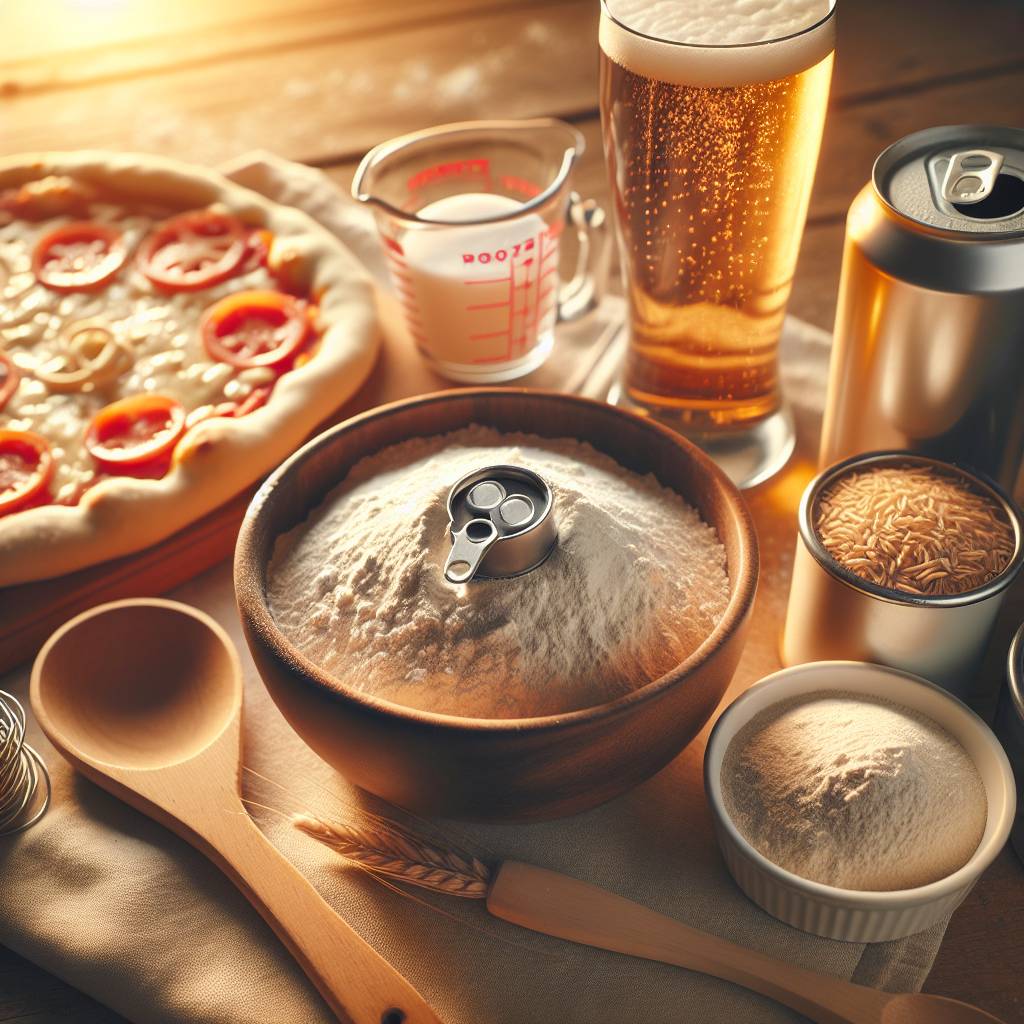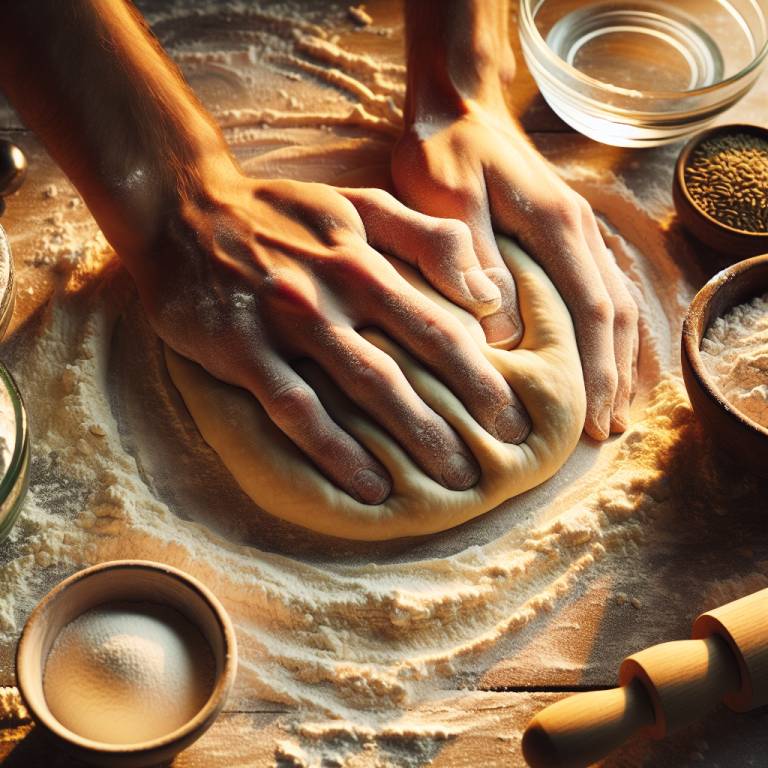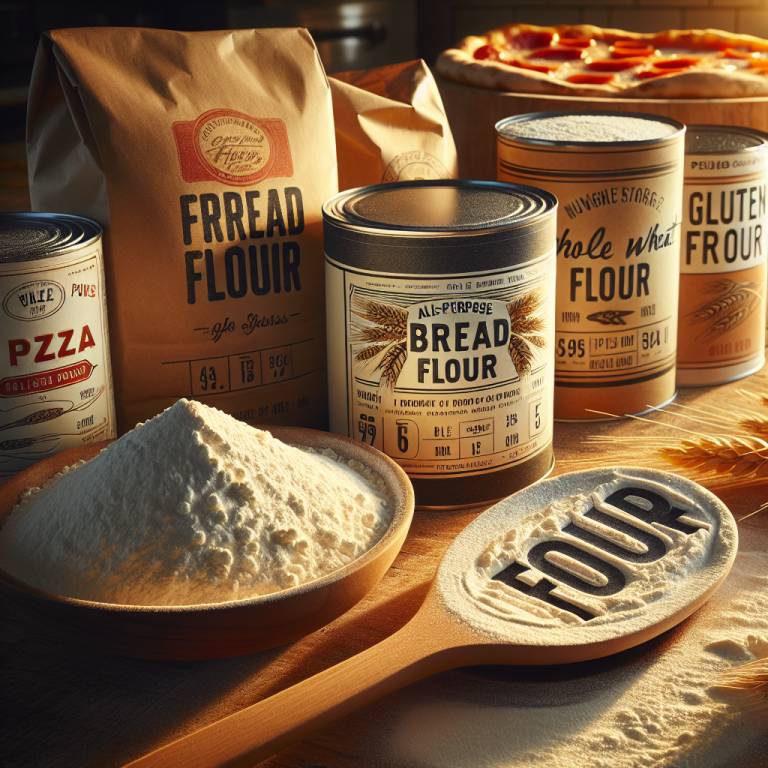Can Beer Replace Water in Pizza Dough Recipes?
Beer can be used as a liquid in pizza dough to enhance its flavor profile. The carbonation helps create a lighter and crispier crust, while the malt and hops add depth and complexity to the taste. Just adjust the liquid amount to account for the beer added.
What are the potential benefits of using beer as a liquid in pizza dough, including flavor, texture, and yeast fermentation?
Using beer in pizza dough can really change the game in terms of flavor and texture. The beer brings a unique taste that water just can’t match. It can add a subtle hint of whatever beer you choose, from a light, fruity ale to a deep, dark stout. This can make your pizza dough stand out and give it a special twist that you can’t find just anywhere.
Beer also affects the texture and yeast fermentation of the dough. The natural carbonation in beer can help the dough become lighter and airier, giving you a fluffier crust. Plus, beer contains yeast, which can help with the fermentation process. This means your dough might rise better and have a more complex flavor profile. It’s like giving your pizza dough a little extra boost to make it even better.
How does the type of beer chosen impact the dough’s characteristics and the overall taste of the pizza?
The type of beer you choose can really make a difference in your pizza dough. For example, a light beer like a lager or pilsner will add a subtle flavor, perfect for those who want just a hint of beer taste. On the other hand, using a stout or porter can give the dough a richer, more robust flavor, which can be great for pizzas with strong toppings like blue cheese or barbecue chicken.
Not only does the beer type affect the flavor, but it also influences the dough’s color and texture. Darker beers can give the dough a slightly brownish hue, making for an interesting visual presentation. The malt in the beer can also affect the dough’s sweetness and the crust’s crispiness. So, choosing the right beer can help you customize your pizza to be exactly how you like it.

Pexels @Polina Tankilevitch
What considerations should be taken into account when substituting beer for water in pizza dough recipes?
When you decide to use beer instead of water in your pizza dough, there are a few things to keep in mind. First, think about the beer’s flavor and how it will blend with your toppings. You don’t want the beer to overpower the taste of your pizza, but rather complement it. Also, consider the beer’s sugar content, as it can affect how brown your crust gets when it bakes.
Another important consideration is the alcohol content in the beer. While most of it will evaporate during the baking process, a small amount might remain. This is something to think about, especially if kids or people who avoid alcohol will be eating the pizza. Always let people know you’ve used beer in the dough, just to be safe.
How can beer contribute to the nutritional profile of pizza dough?
Beer can add some interesting nutritional benefits to your pizza dough. For starters, beer is rich in B vitamins, especially B6, which can help with energy levels. It also contains minerals like magnesium and selenium, which are good for your health. By adding beer to your dough, you’re not just enhancing the flavor and texture, but you’re also giving it a little nutritional boost.
Likewise, the yeast and fiber in beer can help improve digestion. The yeast can aid in the fermentation process, making the dough easier to digest. And although beer only adds a small amount of fiber, every little bit helps. So, using beer in your pizza dough can be a tasty way to add some extra nutrients to your meal.
| Ingredient | Amount (cups) | Effect on Pizza Dough |
|---|---|---|
| Water | 1 | Hydrates the dough and helps with gluten development |
| Beer | 1 | May add a subtle flavor and aroma to the dough, depending on the type of beer used |
| Flour | 3 | Provides structure and texture to the dough |
| Yeast | 1 tsp | Helps with fermentation and rising of the dough |
| Salt | 1 tsp | Enhances flavor and controls yeast activity |
Pizza dough experts, why not just use beer instead of water?
byu/__________________sp inCooking
How can homebrewers experiment with different beers to create unique pizza doughs?
Homebrewers have a fantastic opportunity to make their pizza dough stand out by experimenting with different types of beer. Each beer brings its own set of flavors and aromas, which can greatly influence the taste of the dough. For starters, you might want to try a light lager for a subtle beer flavor or go bold with a stout or porter for a richer, deeper taste. I remember the first time I used my homebrewed cherry wheat beer in a pizza dough. The slight fruitiness it added was a game-changer, making the pizza uniquely delicious.
When experimenting, it’s important to consider the beer’s characteristics and how they will blend with the dough. A hoppy IPA can add a nice bitterness that complements a dough with a bit of honey, while a sour beer can introduce a tangy twist, perfect for a dough that’s topped with strong cheeses and cured meats. Keeping a record of your experiments, including the type of beer used and the final taste of the pizza, can help you refine your recipes over time. This hands-on approach not only enhances your pizza but also deepens your understanding of how different beers interact with baking ingredients.

What are some successful examples of beer-infused pizza dough recipes?
There are several successful examples of beer-infused pizza dough recipes that have caught the attention of pizza lovers and homebrewers alike. One popular recipe involves using a Belgian Saison beer, known for its earthy and spicy notes, which adds a complex flavor profile to the dough. Another great example is a dough made with an American Pale Ale, which introduces a slight bitterness and citrus aroma, pairing wonderfully with mozzarella and fresh basil. These recipes show how the choice of beer can elevate a simple pizza dough into something extraordinary.
For those who enjoy darker beers, a pizza dough recipe using a stout can offer rich, chocolatey notes, making it an excellent base for more savory toppings like barbecue chicken or smoked sausage. On the other hand, a wheat beer can make the dough light and airy, perfect for a classic Margherita pizza. These examples illustrate the versatility of beer in pizza dough recipes and how it can cater to a wide range of tastes and preferences. By choosing the right beer, you can create a pizza dough that’s not just a base but a key flavor component of your dish.
How do the alcohol content and carbonation in beer affect dough rising and texture?
The alcohol content and carbonation in beer play significant roles in the rising and texture of pizza dough. The carbonation, in particular, can help the dough rise better. This is because the bubbles in the beer introduce gas into the dough, making it lighter and more airy. However, it’s important to balance this with the right amount of yeast, as too much carbonation can lead to an overly airy dough. On the other hand, the alcohol in beer can slightly inhibit yeast activity, slowing down the rising process. This isn’t necessarily a bad thing, as it can lead to a more developed flavor in the dough.
When I experimented with a high-alcohol beer in my pizza dough, I noticed it took longer to rise, but the texture was incredibly tender, and the flavor was more pronounced. It’s a delicate balance, but understanding how alcohol content and carbonation affect your dough can help you achieve the perfect texture and rise. For those looking to experiment, starting with a beer with moderate alcohol content and carbonation is a good idea. This way, you can observe the effects on your dough and adjust your recipe as needed to achieve the desired outcome.
What are some creative ways to pair the flavors of beer-infused pizza dough with various toppings and sauces?
Creative pairing of beer-infused pizza dough with toppings and sauces can turn a simple pizza into a gourmet experience. For a dough made with a hoppy IPA, consider toppings that can stand up to its bitterness, such as spicy pepperoni, sharp cheddar cheese, or even a drizzle of honey to balance the flavors. If you’re using a dough with a stout, rich toppings like caramelized onions, blue cheese, and roasted mushrooms can complement the deep flavors of the beer. It’s all about finding a balance that enhances both the dough and the toppings.
Another fun idea is to mirror the flavors found in the beer with your toppings and sauces. For example, a pizza dough made with a fruit-infused beer could be topped with complementary fruits, like figs or pears, along with gorgonzola cheese and a balsamic reduction. Or, for a wheat beer dough, a light and zesty lemon-herb chicken topping could bring out the beer’s citrus notes. The possibilities are endless, and by thinking creatively about your beer and topping pairings, you can create pizzas that are truly unique and delicious. Remember, the key is to experiment and have fun with it!
Final Thoughts
While beer can add a unique flavor to pizza dough, it’s important to consider the alcohol content and how it may affect the dough’s texture and rise.
- Beer can be used as a liquid in pizza dough, providing a distinct flavor profile.
- The alcohol in beer can hinder yeast activity, affecting the dough’s ability to rise properly.
- Using beer in pizza dough may require adjustments to the recipe to ensure the desired texture and rise.
- Experimenting with different types of beer can lead to varied and interesting flavor combinations in your pizza crust.
- Consider using non-alcoholic beer as a substitute if you want to avoid the effects of alcohol on the dough.






